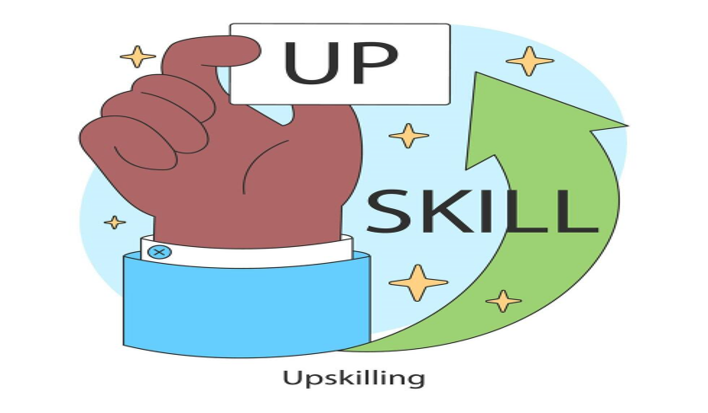Allow me to share a hypothetical instance and see if you are able to relate to this. Let’s go back to 2010 where a marketing director at a global FMCG company confidently dismissed social media marketing as a fleeting trend. By 2015, the company struggled to connect with digitally native millennials, while competitors soared on platforms like Instagram and Snapchat. Despite decades of experience, the director found himself outpaced by younger, tech-savvy professionals. This anecdote serves as a stark reminder: in marketing and advertising, staying still means falling behind. Now, considering gen Alpha, is imperative to stay relevant for which upskilling is no longer optional—it’s essential for survival and success.
The pace of change in marketing and advertising today is unprecedented. From generative AI and programmatic advertising to evolving consumer behaviours, the landscape is continually reshaping itself. For C-suite leaders and senior marketers, this rapid evolution isn’t just a challenge; it’s a call to action.
After reading through a lot of relevant articles on this topic, I am sharing five reasons that I find compelling on why upskilling is the linchpin to thriving in this ever-changing domain:
- Staying Ahead of Technological Advancements
Why It Matters: Marketing is as much about mastering technology as it is about creativity. AI-powered personalisation tools, advanced analytics platforms, and machine learning are at the core of impactful campaigns.
Example: Adobe’s Sensei AI empowers marketers to predict consumer behaviour and deliver hyper-personalised content. However, effectively leveraging such tools requires understanding AI basics and data-driven strategies.
Senior leaders must foster a learning culture. Offering access to certifications in platforms like Google Analytics, HubSpot, or Tableau can empower teams to stay competitive and maximise technology’s potential.
- Adapting to Shifts in Consumer Behaviour
Why It Matters: Today’s consumers are more empowered, skeptical, and demand authenticity. The plethora of platforms—from TikTok to the metaverse—has diversified how consumers interact with brands.
Example: PepsiCo’s “PepsiMoji” campaign successfully engaged millennials by blending humour, emotions, and interactivity across digital and physical touchpoints. This was possible due to the brand’s deep understanding of its target audience.
The Upskilling Angle: To keep up, marketers need expertise in neuromarketing, behavioural science, and social listening tools. These skills enable leaders to anticipate preferences and craft campaigns that resonate on an emotional level.
- Thriving in an AI-Driven World
Why It Matters: Generative AI has revolutionised creativity, from writing ad copy to producing visuals. However, its value lies in complementing human ingenuity, not replacing it.
Example: Coca-Cola’s “Create Real Magic” campaign invited consumers to co-create branded content using AI tools. This groundbreaking initiative required marketers to manage human-AI collaboration effectively.
Leaders should invest in AI literacy and creative applications training. Understanding how to ethically and strategically deploy AI tools will differentiate brands in an increasingly automated world.
- Cross-Functional Collaboration
Why It Matters: Marketing success often hinges on collaboration between creative teams, data analysts, and tech experts. Silos stifle innovation, whereas integration drives growth.
Example: Nike’s direct-to-consumer (DTC) strategy thrived on cross-functional teamwork. Marketing, tech, and retail teams collaborated to deliver personalised app experiences, boosting sales and customer loyalty.
Leaders should promote Agile or Scrum project management training. These methodologies streamline workflows, enhance collaboration, and ensure teams can pivot swiftly in response to market changes.
- Elevating Leadership Relevance
Why It Matters: For C-suite leaders, upskilling is about more than personal growth—it’s about maintaining credibility and inspiring teams. Leaders who lack awareness of emerging trends risk strategic missteps and diminishing trust.
Example: A CMO at a global tech giant undertook a six-month course on blockchain and subsequently spearheaded a campaign positioning the company as a Web3 innovator. This proactive learning reinforced their status as a forward-thinking leader.
An insight that I observe from my own journey is that C-suite leaders should lead by example by pursuing executive education programs, attending industry conferences, and investing in lifelong learning. A leader’s visible commitment to growth motivates their teams to follow suit.
To conclude this piece, I’d say in marketing and advertising, evolution is not just a possibility—it’s a certainty. Upskilling isn’t merely a way to respond to change; it’s a strategy to lead through it. For C-suite leaders and senior marketers, the ability to embrace continuous learning determines not just personal relevance but also organisational resilience.
As you consider your role in this dynamic landscape, ask yourself: Are you equipped to lead the future of marketing, or are you tethered to the past? The answer to this question may well define your legacy as a transformative leader.
The views and opinions published here belong to the author and do not necessarily reflect the views and opinions of the publisher.



Be the first to comment on "The Edge of Tomorrow- Why Upskilling is Non-Negotiable for Marketers?"